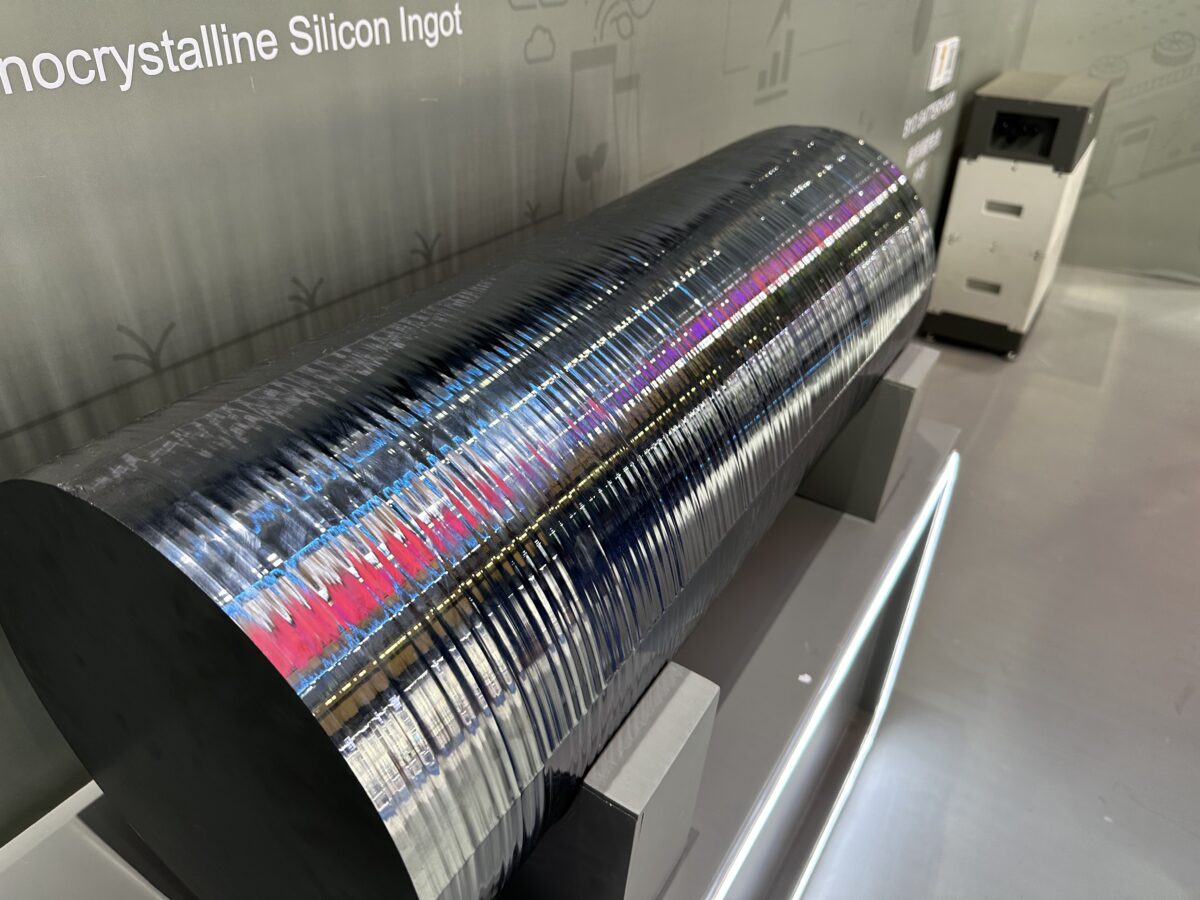From pv magazine India
Renaissance Solar and Electronic Materials (RSOLEC), a solar company with operations in India and the United States, has announced plans to focus on solar crystal growth and wafering in India. The company's long-term goal is to establish a prominent presence in the complete solar value chain.
Initially, RSOLEC will set ip a solar crystal growth and wafering facility with a yearly production capacity of 5 GW, with plans to expand to over 20 GW in the future. The facility is scheduled for commissioning in late 2025, and production will start in 2026.
RSOLEC is now evaluating multiple short-listed production site options that offer attractive opportunities. The announcement of RSOLEC's solar manufacturing plans in India follows its recent official launch and establishment, accompanied by a planned investment of approximately $300 million.
“With global reach and expertise in differentiated solar and electronic materials manufacturing, RSOLEC is set to revolutionize the industry with a strategic focus on solar crystal growth and wafering,” said the company.
RSOLEC said that for the next five years, it will mainly focus on crystal growth and wafering operations in India, with a significant contribution to the country's strategic solar manufacturing capacity. The company's long-term vision involves extending its manufacturing activities across the entire solar value chain.
It said its core objective is to establish a pioneering position in solar manufacturing with the lowest capital intensity, ensuring globally competitive production costs. Its roadmap outlines an ambitious goal of achieving a capital intensity below $35 million per gigawatt.
Popular content
RSOLEC said its facility will feature the state-of-the-art Recharge Czochralski (RCZ) process, which can be adapted to the emerging Continuous Czochralski (CCZ) process for crystal growth. Wafer production will be based on the cutting-edge DCW platform, designed to produce thin wafers measuring less than 100 micrometers in thickness.
The main product will be high-quality silicon wafers characterized by low oxygen content, extended lifetimes, and controlled resistivity. These wafers will be compatible with all solar cell technologies, including TOPCon, PERC, HJT, and Tandem structures.
RSOLEC said it wants to produce crystals with uniform resistivity, potentially resulting in an average cell efficiency increase of 0.15%, a milestone not yet achieved in the solar manufacturing industry. For select customers with stringent requirements for low oxygen content, the magnetic Czochralski (MCZ) platform will be used. The facility will have the capacity to produce wafers in various sizes, including M10, G12, and G16.
Leveraging continuous technological advancements on existing platforms, the company said it expects an 80% improvement in productivity and a 40% reduction in production costs in a relatively short time frame.
RSOLEC, founded and supported by technocrats from five different countries spanning three continents, is headquartered in the US state of Delaware, and operates through its Indian subsidiary situated within the IIT Madras Research Park.
“RSOLEC is poised to contribute to the solar energy revolution and initiate the cultural transformation required for success in the dynamic solar manufacturing sector,” said Milind Kulkarni, chairman and CEO of RSOLEC. “Our differentiation lies in our technology-driven, low-risk innovations, positioning RSOLEC at the forefront of the solar industry.”
This content is protected by copyright and may not be reused. If you want to cooperate with us and would like to reuse some of our content, please contact: editors@pv-magazine.com.



By submitting this form you agree to pv magazine using your data for the purposes of publishing your comment.
Your personal data will only be disclosed or otherwise transmitted to third parties for the purposes of spam filtering or if this is necessary for technical maintenance of the website. Any other transfer to third parties will not take place unless this is justified on the basis of applicable data protection regulations or if pv magazine is legally obliged to do so.
You may revoke this consent at any time with effect for the future, in which case your personal data will be deleted immediately. Otherwise, your data will be deleted if pv magazine has processed your request or the purpose of data storage is fulfilled.
Further information on data privacy can be found in our Data Protection Policy.